![]() — หน้าแรก — เกาะติดข่าว
— หน้าแรก — เกาะติดข่าว
ข่าวเศรษฐกิจและธุรกิจประจำสัปดาห์
-
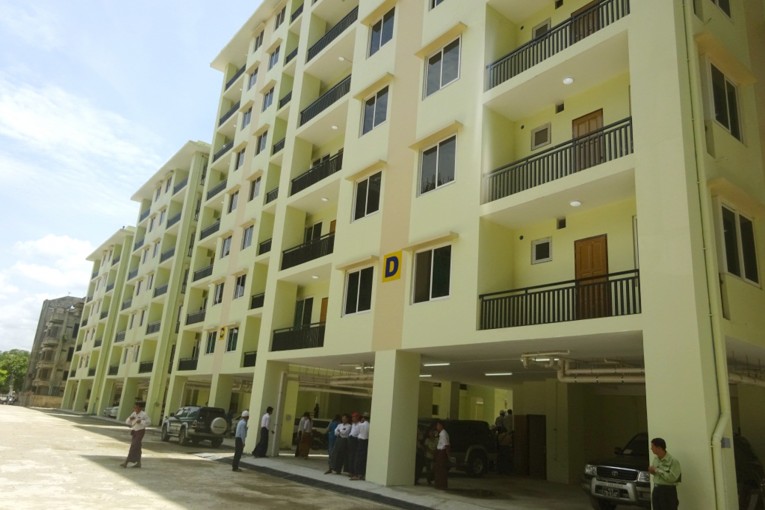
Myanmar Licensed Contractor Association (MLCA) submitted draft Apartment Law to parliament in order to generate more demand and create a market for apartments in Myanmar
The Myanmar Licensed Contractor Association (MLCA) has drafted a proposed Apartment Law to address a regulatory gap in the property sector. Its aim is to generate more demand and create a market for apartments in Myanmar. The MLCA’s Apartment Law seeks to regulate apartment buildings developed on land areas of less than 20,000 sq ft. At the moment, only buildings developed on land spanning 20,000 sq ft and above are defined as condominiums and therefore regulated by the 2016 Condominium Law. “The draft Apartment Law is now under discussion and in the process of being submitted to the Pyithu Hluttaw. If it is passed, it will be beneficial both to residents and contractors,” said U Zaw Win, a patron of the MLCA. The Apartment Law, which was drafted with the help of former government officials and professional lawyers, provides recourse for apartment owners in the event of contract disagreements with buyers. -
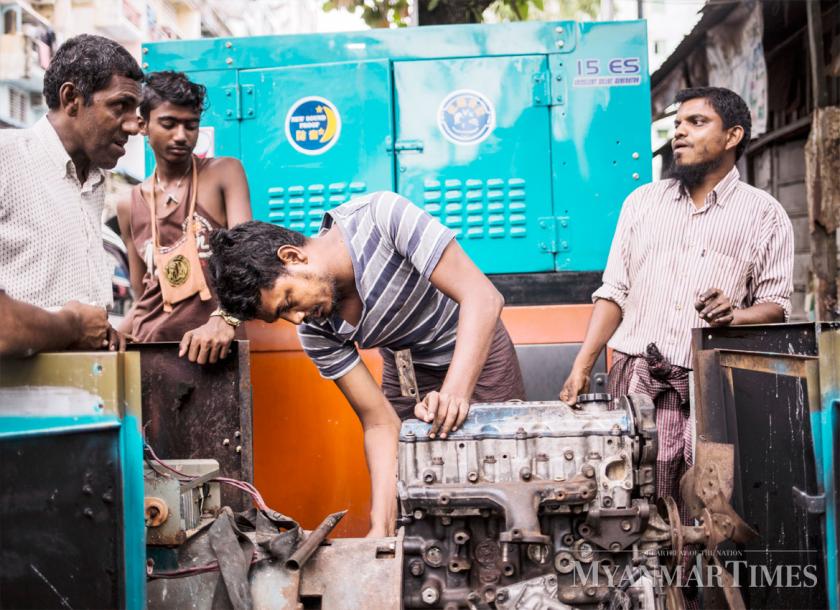
Electricity generation and distribution could lose about K630 billion in the 2018-2019 fiscal year (Dr. Tun Naing, Deputy Minister for Electricity and Energy)
The electricity supply sector is forecast to lose about K630billion in the coming 2018-19 fiscal year, said Dr Tun Naing, deputy minister for Electricity and Energy, told Pyidaungsu Hluttaw yesterday. “Power generation and distribution is expected to lose about K629.9 billion in the fiscal year of 2018-19,” Dr Tun Naing said during his presentation. In 2017-18, the electricity sector chalked up losses of K507.9 billion, which is about K100 billion less than expected, he said. The National Electricity Project (NEP) is being implemented and therefore, power consumption of each household has increased dramatically, he said. When the new government took power on March 31, 2016, only 34 percent of households were able to use electricity supplied from the national grid. That has increased to 40pc as of June, he said. -
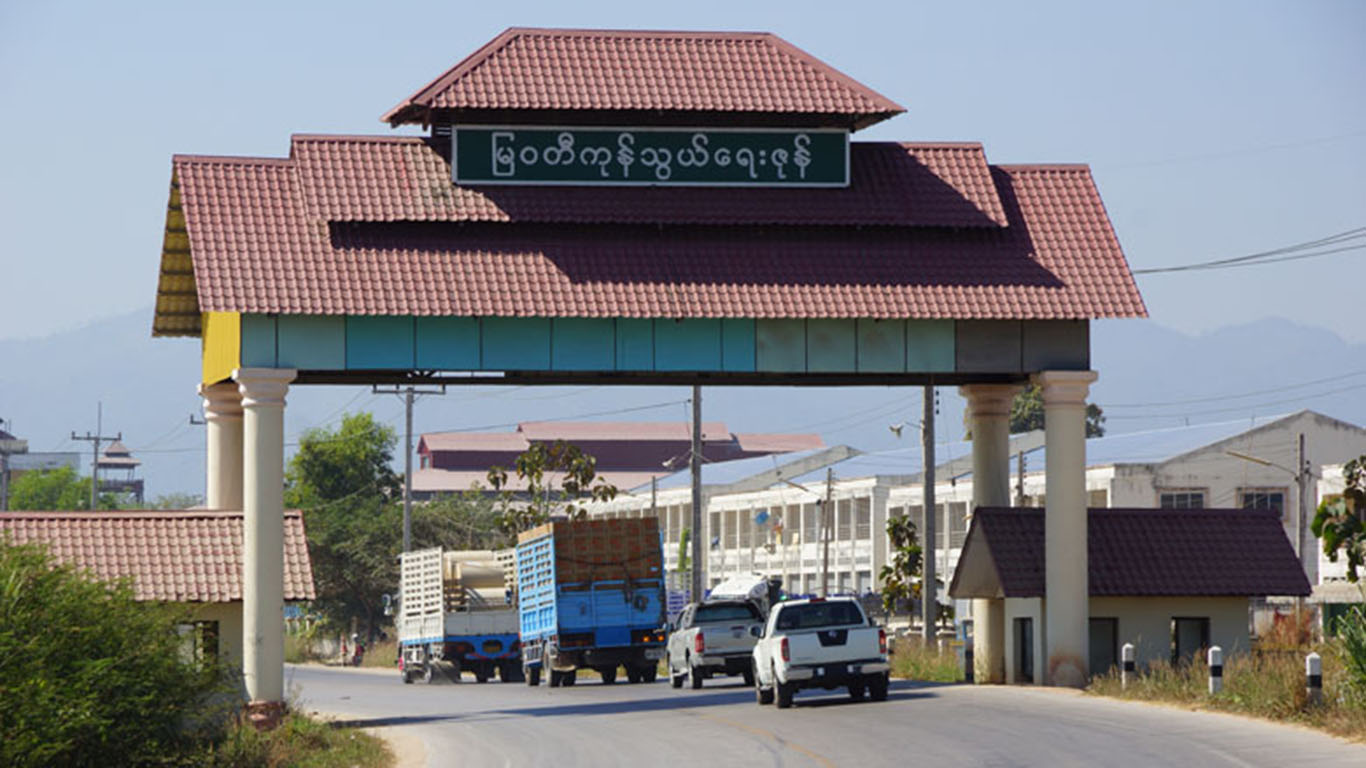
Bilateral border trade between Myanmar and Thailand exceeds over US$400 million in this fiscal year
BILATERAL border trade between Myanmar and Thailand this financial year totalled US$415.9 million, with exports worth $123 million and imports worth $292.9 million, according to the official statistics issued by the Ministry of Commerce. The current trade figures increased by over $57 million against the same period last year, when border trade between the two nations was $358 million. The country exports agricultural, forest and animal products, minerals, manufactured goods and other miscellaneous products to neighboring Thailand. Its import covers medicines, cosmetics, food and beverages, stationery, footwear, clothing, machinery and other commodities. Myanmar delivers goods to Thailand through its sea routes as well as cross-border gates. Seven border trade camps are opened between the two states, including Tachilek, Myawady, -
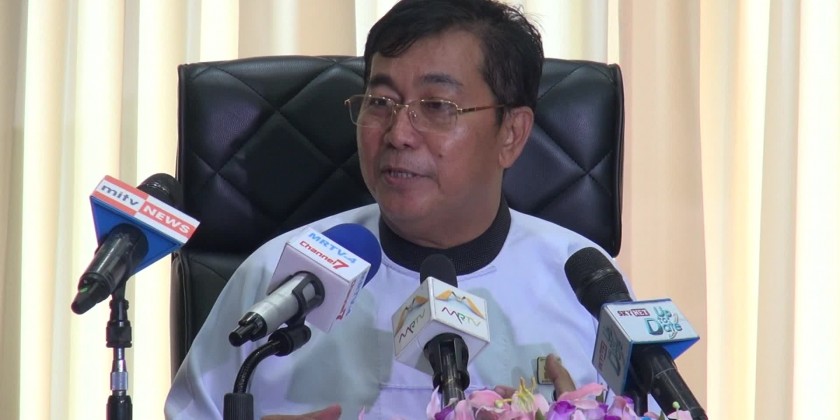
Yangon Region Government held a press briefing on the recent shut down of the factories and airlines in Myanmar
The Yangon Region Government held a press briefing on the recent shut down of the factories and airlines in Myanmar. Rumors have been spreading that 14 factories in Hlaingthaya Indistrial Zone have ceased their operations. It arouses concerns among the local basic laborers and foreign investors as well. Officials from the Yangon Region Government have conducted surveys and studied the recent conditions, nature of operation and management of the factories running in Hlaingthaya Industrial Zone. According to the report, only 4 out of the 14 rumored factories ceased their operations and shut down due to poor management, low quality production, low profit and many other reasons. The remaining factories are in operation, and some have moved to the new locations. -
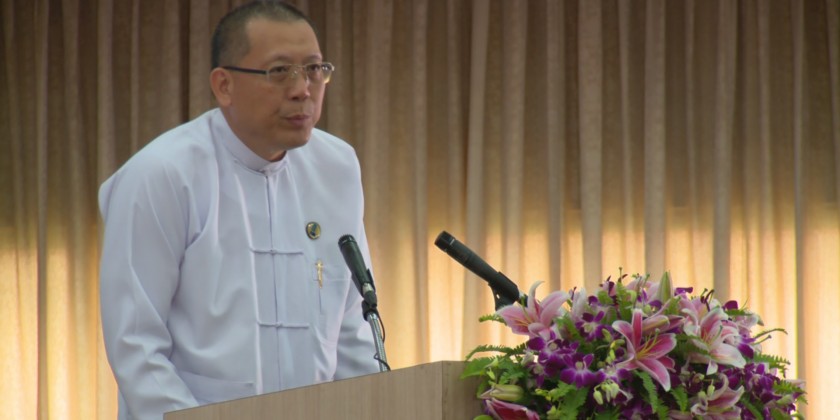
Trademark Law and Industrial Design Law Forum took place in Yangon with the aim to share knowledge on Intellectual Property (IP), laws and discuss current issues emerging across the world concerning IP rights
The “Trademark Law and Industrial Design Law” Forum took place in Yangon on Wednesday. The Forum aims to share general knowledge on Intellectual Property (IP), laws and discuss current issues emerging across the world concerning IP rights. Judicial officers, law officers, prominent intellectual property law firms, related ministries and international organizations participated in the drafting process to harmonize the draft laws and Myanmar legal environment. Four bills concerning Trade Mark, Patent, Industrial Design and Copyright were approved by the National Parliament (Amyotha Hluttaw) and endorsed to the People's Parliament (Pyithu Hluttaw) on the 15th of February, 2018. President, Myanmar Intellectual property proprietors’ association, Kyaw Kyaw Win said “To help the people be familiar with terms and conditions of intellectual properties and rights before the Intellectual Property law comes out, we are holding talks, forums and workshops. We need to keep raising public awareness to ensure compliance as well. The laws are required to protect businesses and copyrights for the public interest.” -
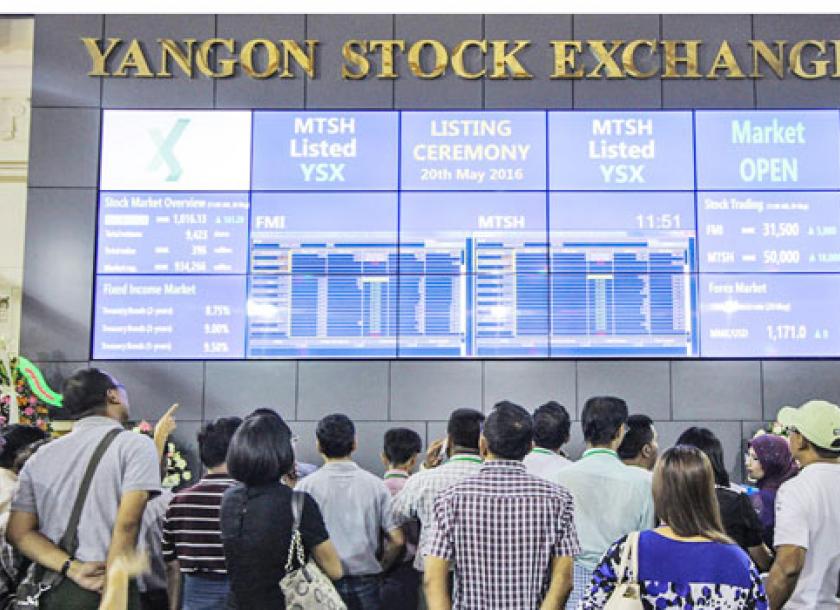
Yangon Stock Exchange (YSX) will lower brokerage fees by early of August to attract more investors
In order to lure in and attract more investors, Yangon Stock Exchange (YSX) will lower brokerage fees. This change in fees was announced by Securities and Exchanges Commission of Myanmar (SECM)’s on July 24, and will hopefully move the country forward and help its development. Before this change in brokerage fees, companies charged by certain security companies for trading were much higher. The previous fees included: K5,000 for trading under K500,000, 1 percent for trading from K500,000 to K1 million, 0.8 percent for K1 million to 10 million, 0.6 percent for K10 million to K100 million and 0.5 percent for above K100 million. Now they have been reduced to, 1 percent for trading worth K500,000 to K1 million, 0.7 percent for K1 million to 10 million, 0.5 percent for K10 million to 100 million and 0.4 percent for above K100 million. -

Ministry of Commerce publicizes list of retail and wholesale goods open to foreign investment, as well as the list of products allowable for trade
The Ministry of Commerce (MOC) has issued its standard operating procedure (SOP) for retail and wholesale business registrations as well as a list of products allowable for trade. The updates were announced on July 26, more than two months after notification (25/2018) was officially released, allowing retail and wholesale services run by wholly-owned foreign companies and joint ventures involving foreigners to operate in the country The MOC said the list of products will provide specific information and make clear the type of goods allowed to be traded in Myanmar. The list includes 24 products and items, such as consumer goods, which includes clothes, watches and cosmetics, foodstuff, which includes agricultural, fishery, animal and instant products, beverages and locally-produced liquor, household and kitchen items, drugs and medical equipment as well as vehicles and vehicle parts (see table). -
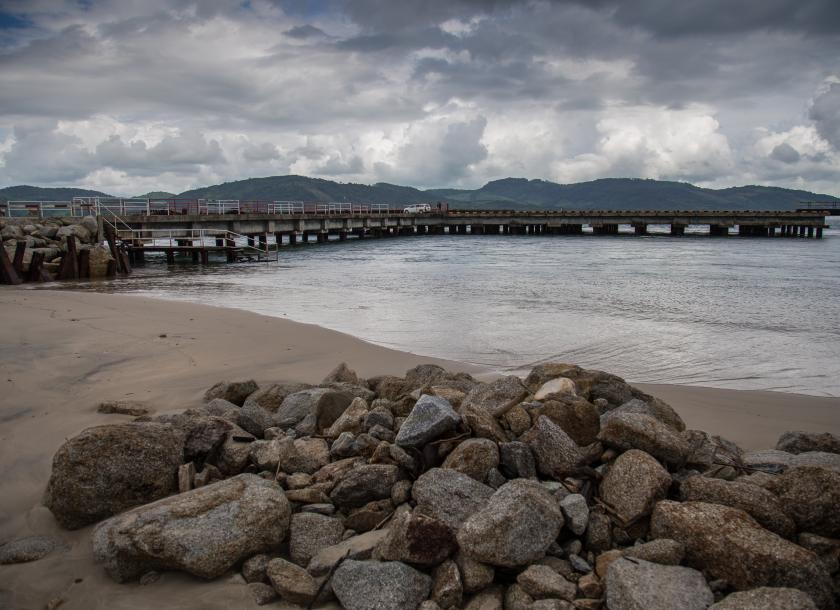
President U Win Myint has proposed reappointing the current Central Bank Governor U Kyaw Kyaw Maung after his current term is complete at the end of July
President U Win Myint has proposed reappointing 79-year-old U Kyaw Kyaw Maung as governor of the Central Bank of Myanmar (CBM) after his current term is complete by the end of this month. Parliament representatives had been expecting the job of improving Myanmar’s financial system to be given to a much younger candidate. Some have voiced their disapproval of the President’s proposal, saying there was no improvement during U Kyaw Kyaw Maung’s first term. "While he is capable, we do not expect him to bring much change to the financial system," said Daw Khin San Hlaing, chair of the Banks and Monetary Development Committee. Some MPs reckon the reason for reappointing U Kyaw Kyaw Maung is to maintain stability in the system, as he has fulfilled the requirements of the former and current government and has many years of experience. -
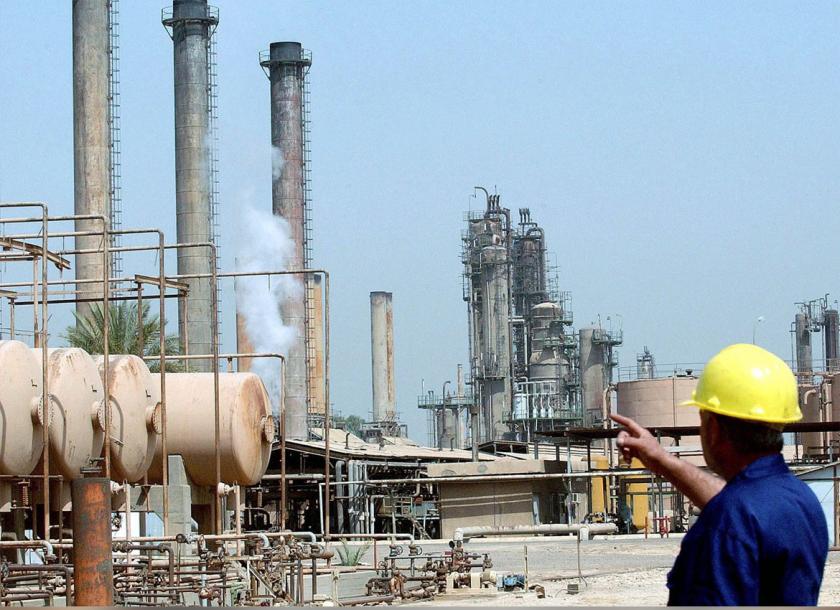
PTT Exploration and Production Plc (PTTEP) urged the Myanmar government to start operate large gas power plant project in order to add value to the existing exploration and production (E&P) business in Myanmar
Set-listed PTT Exploration and Production Plc (PTTEP) is proposing that Myanmar’s energy policymakers develop and operate a large gas-fired power plant to tap surging demand for energy there. If the project goes forward, it will be handled by PTTEP International Co Yangon Branch, the company’s wholly owned subsidiary in Myanmar. Piya Sukhumpanumet, general manager of PTTEP International, said the plan is to partner up with sister firm Global Power Synergy Plc (GPSC) on the project. The national oil and gas conglomerate, PTT Plc, is the parent firm of both PTTEP and GPSC. GPSC is in charge of power business. Mr Piya said the project will cost hundreds of millions of dollars and is being considered by policymakers in Myanmar. -
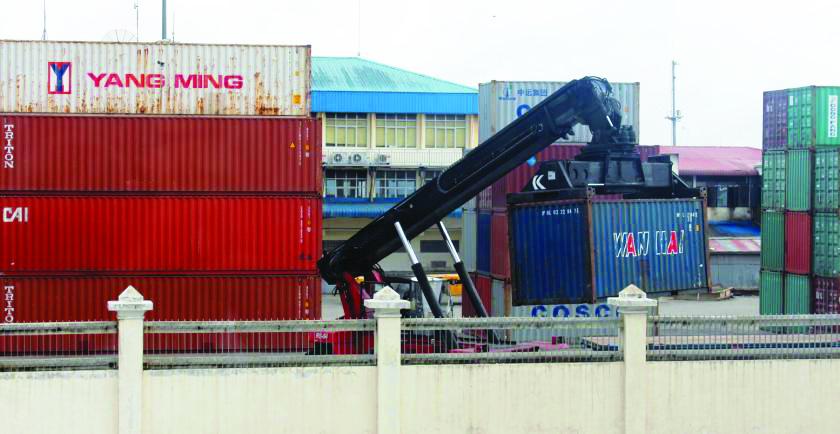
UMFCCI urged the government to adopt necessary measures to cut abundant imports in order to balance the trade deficit
In order to balance the trade deficit, U Ye Min Aung, Vice President of UMFCCI urged the government to adopt necessary measures to cut abundant imports in his remarks during a Union of Myanmar Federation of Chamber of Commerce and Industry (UMFCCI) meeting between the Vice President of Myanmar and local business leaders. He proposed adopting import policies such as minimum access, tariff rates and quota, and importing only essential goods to assist local products in a competitive market. However, Dr. Than Myant, Union Minister for the Ministry of Commerce, suggested that it is not yet possible to reduce imports, since imported goods are essential to the daily operation of the country. Myanmar should focus instead on improving the quantity and quality of exports.
เกาะติดข่าว
Copyright © 2014 Business Information Center All Rights Reserved.







